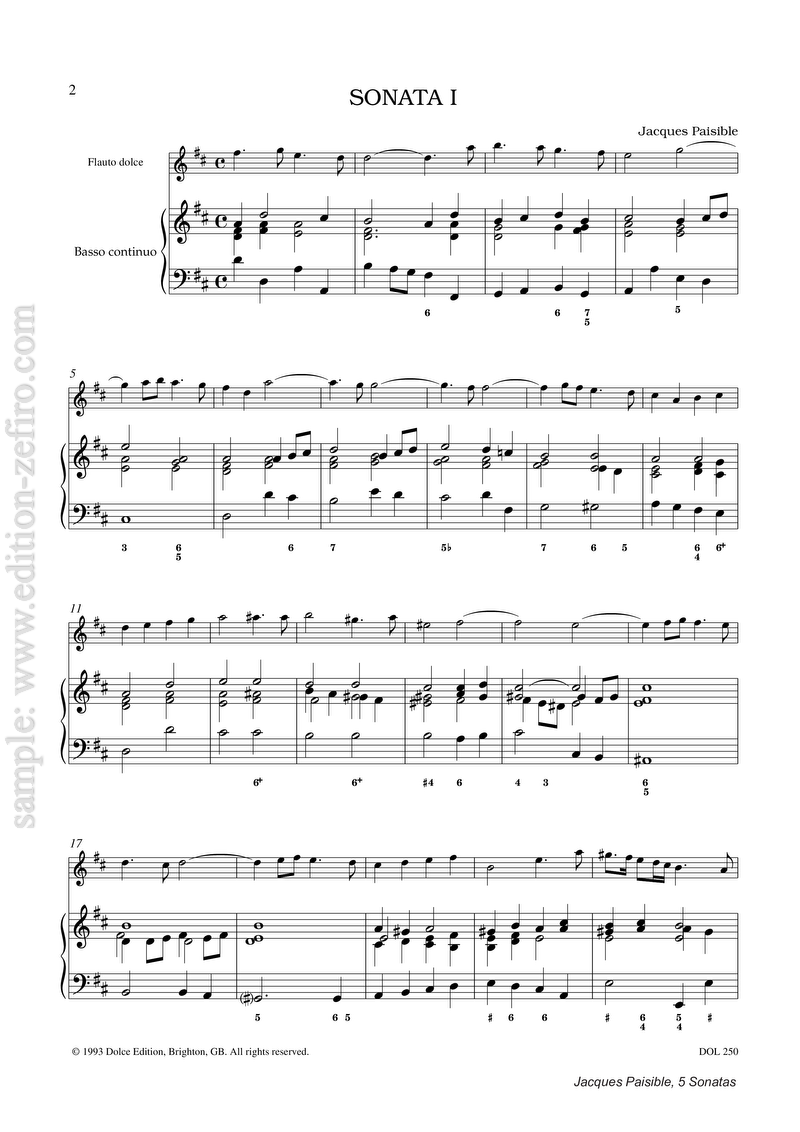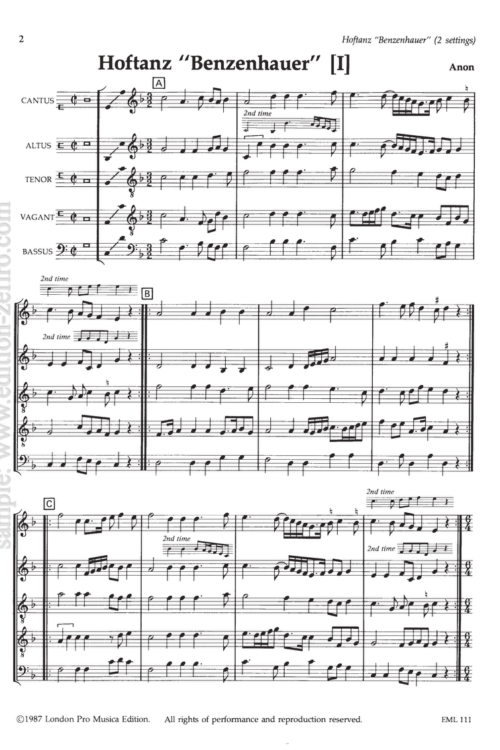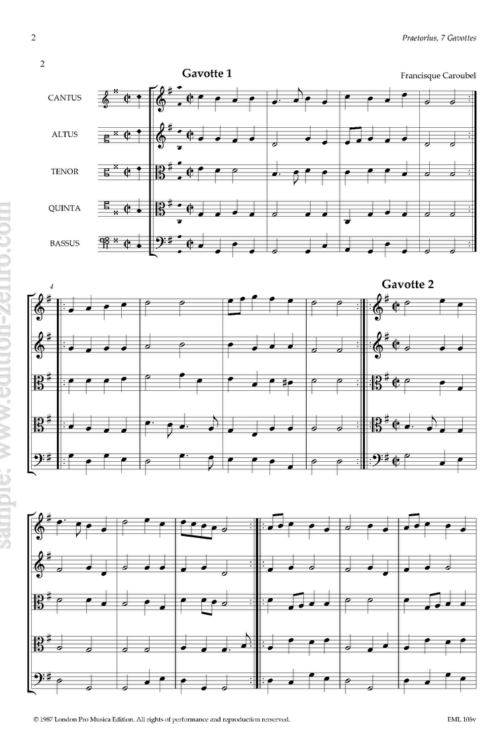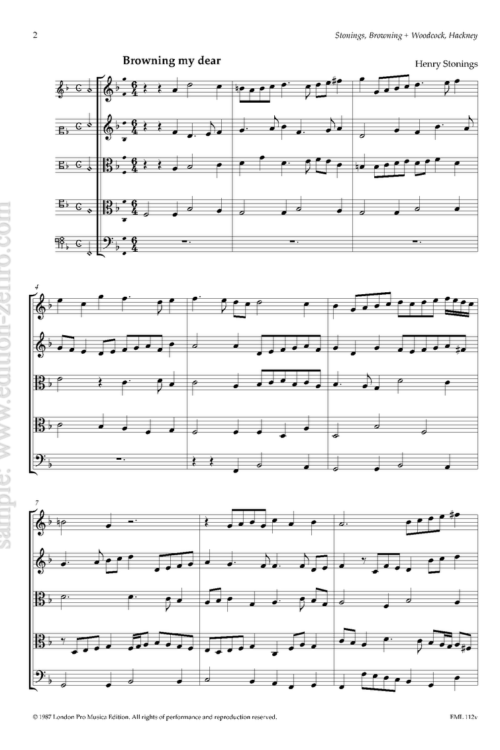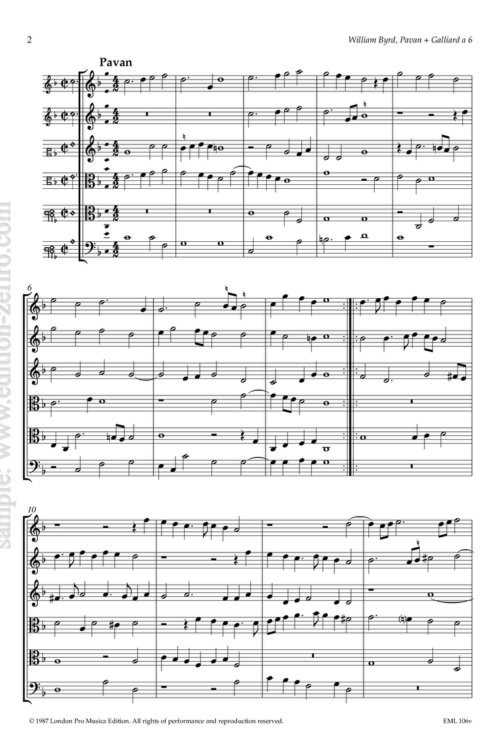Jacques Paisible (James Peasible) was born about 1656 in, or in the neighbourhood of Paris. Various members of his family were employed at the court of Louis XIV — Louis Paisible is listed as “joueur de cromorne” in the Grande Ecurie, and Guillaume Paisible was a page in the Chambre du Roi. Jacques was probably educated musically at the court and, as was then customary, was given tuition on wind and string instruments. It is possible that Paisible came to England, together with R. Cambert and other French musicians, in 1673, although the first English reference to him is in connection with Crowne’s masque “Calisto”, which was performed in 1675 in Whitehall. Paisible and three other French musicians played the oboe and recorder parts, and it could well be that this was the first time that English theatre-goers heard the new Baroque wind instruments recently imported from France. These instruments must have met with immediate approval, as very soon a number of recorder tutors appeared on the market, and eminent composers like Henry Purcell and John Blow began writing for the instrument. Within a short space of time Paisible was established as composer for the court and the theatre. His output was in the French style, it being the fashionable court style of the time. In the theatre Paisible worked as a cellist, but he made his greatest impact as a recorder player in public concerts, appearing with J. Banister, P. la Tour, Fr. Dieupart and G. Visconti amongst others. When the Royal Academy of Music was founded in 1695, Paisible, together with Banister and Demoivre, was one of the teachers for recorder. In 1686 Paisible married the one-time mistress of Charles II, the actress and singer Mary (Moll) Davis. Mary’s illegitimate daughter, Lady Mary Tudor, probably lived with the Paisibles until her own marriage. In 1687 Paisible became an English subject, but at some stage between 1688 and 1693 he must have returned to France. Perhaps he accompanied James II, fleeing from the Protestants, to Paris. In any case he had to apply for a passport to enable him and his family to re-enter England.
(Marianne Mezger)


